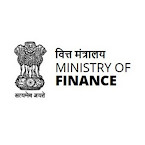Regulators, the Guardians of Capital Market
Indian Capital Markets are regulated & monitored by the Ministry of Finance, the Securities & Exchange Board of India (SEBI), and the Reserve Bank of India (RBI).
Ministry of Finance
It regulates the Department of Economic Affairs - Capital Markets Division. This division is responsible for formulating the policies related to the orderly growth & development of the securities markets (i.e., shares, debt and derivatives) as well as protecting the interest of investors.
Responsibility:
- Institutional reforms in the securities markets.
- Building regulatory & market institutions.
- Strengthening investor protection mechanism.
- Providing an efficient legislative framework for securities & markets.
SEBI (Securities Exchange Board of India)
SEBI Act 1992 regulates the functioning of this independent body in governing the Indian stock exchanges.
Functions of SEBI:
- It checks price rigging or price fixing.
- It prohibits insider trading.
- SEBI has prescribed a set of rules & regulations for each entity.
- Prohibits fraudulent & unfair trade practices.
Development Functions of SEBI
- SEBI promotes the training of intermediaries of the securities market.
- SEBI promotes stock exchange activities by adopting a flexible and adaptable approach.
Regulatory Functions of SEBI
- SEBI has framed rules & regulations, and a code of conduct.
- SEBI registers & regulates the working of mutual funds, etc.
- SEBI conducts inquiries & audits of stock exchanges.
- SEBI regulates the takeover/merger of the companies.
RBI (Reserve Bank of India)
RBI Act 1934 governs the policies framed by RBI.
Functions:
- Implementation of monetary & credit policies
- Issuance of currency notes
- Government's banker
- Banking system regulator
- Foreign Exchange through Foreign Exchange Management Act, 1999
- Managing payment & settlement system
National Stock Exchange (NSE)
NSE is regulated by SEBI & is under regular vigilance for all regulatory compliances. It is responsible for formulating & implementing the rules on:
- registration of members
- listing of securities
- monitoring of transactions
- compliance
SEBI's Investor Protection Strategy
- SEBI conducts workshops to educate & spread awareness about the investments.
- Introduce system & practice for screen-based trading, dematerializing securities & implementing T+2 rolling settlements.
- A disclosure-based regulatory regime that helps investors to make decisions carefully.
- Redressal of investor grievances.
- SCORES (SEBI Complaints Redress System) - web-enabled setup by SEBI to enable investors to lodge & follow up on their complaints, & track the status of redressal of such complaints online from the website.





Comments
Post a Comment